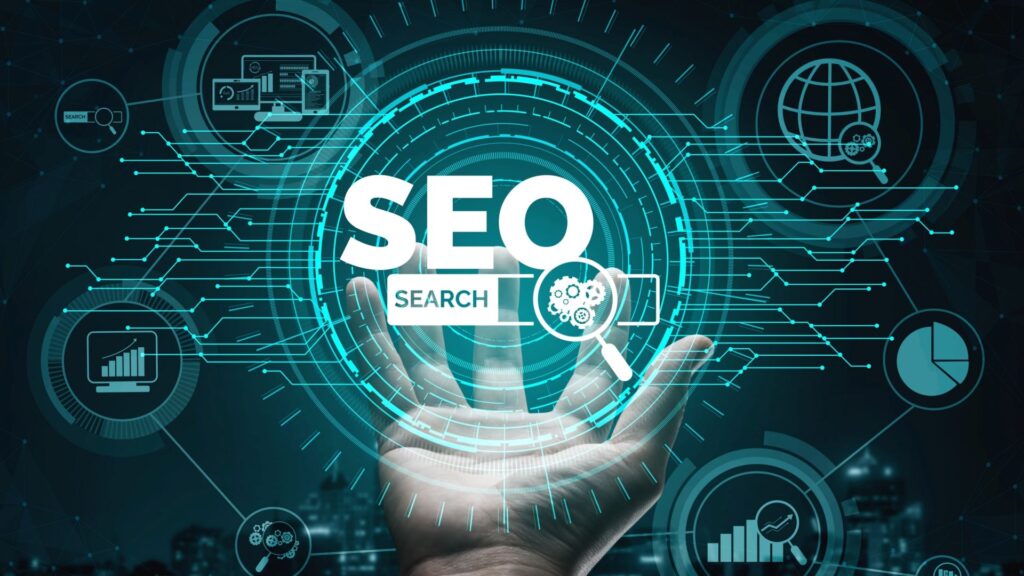Digital marketing has evolved remarkably from its origins, spanning basic email campaigns to today’s complex landscape encompassing SEO, social media, The evolution of digital marketing and advanced analytics. In Kochi, businesses benefit from partnering with a Brand Consultant in Malappuram Kerala, leveraging local insights for targeted growth amidst evolving digital trends.

Online Advertising
The 1990s saw the birth of online advertising, with simple banner ads marking the beginning of a new era.

Search Engine Marketing
The advent of search engines like Yahoo and Google enabled businesses to leverage pay-per-click (PPC) advertising to increase online visibility.

Social Media Platforms
The rise of platforms like My Space, Facebook, and LinkedIn in the early 2000s allowed businesses to engage with customers through user-generated content.
1. Search Engine Optimization (SEO): Staying on Top of SERPs
Search Engine Optimization remains one of the most effective ways to increase visibility and organic traffic to your website. In 2025, SEO strategies will continue to evolve, with a focus on:
- Voice search optimization: As voice-activated assistants like Alexa and Google Assistant become more popular, voice search will require a new approach to keyword strategy and content creation.
- Core Web Vitals: Google is prioritizing page experience metrics, such as loading speed and user interactivity. Ensuring your site performs well on these fronts will improve your rankings.
- Featured Snippets: Positioning your content to appear in Google’s “featured snippet” box is a powerful way to capture traffic.
Tip: Use tools like Google Search Console, Ahrefs, or SEMrush to track your SEO performance and optimize your strategy.
2. Content Marketing: Creating Value-Driven Content
Content marketing is a cornerstone of The evolution of digital marketing. Creating valuable, high-quality content is essential for attracting and engaging your audience. This can include blog posts, videos, infographics, and podcasts.
In 2025, consider focusing on:
- Interactive content: Quizzes, polls, and calculators increase engagement and help businesses gather valuable customer data.
- Long-form content: Detailed, in-depth content that answers user queries tends to rank well in search engines and attracts a loyal audience.
- AI-generated content: With AI tools like GPT-4, content creation can be faster and more personalized, but remember that human oversight is still necessary for creativity and quality.
Tip: Consistently analyze your audience’s needs and preferences to craft content that resonates with them.
3. Social Media Marketing: Building Communities
Social media is crucial for brand visibility and customer engagement. With billions of users across platforms like Facebook, Instagram, LinkedIn, and TikTok, social media marketing allows businesses to reach a vast audience.
In 2025, the following trends will be significant:
- Influencer Marketing: Micro and nano influencers (with smaller but highly engaged audiences) are becoming more valuable to brands.
- Video content: Short-form video (TikTok, Instagram Reels) is dominating the digital space. Invest in creating engaging and authentic video content.
- Social commerce: Social media platforms are integrating eCommerce features, allowing businesses to sell directly through their profiles.
Tip: Use tools like Hootsuite or Buffer to schedule and track your social media campaigns, and analyze which content works best.
4. Email Marketing: Nurturing Relationships
Despite the rise of social media, email marketing remains one of the most effective ways to build lasting relationships with customers. A strong email marketing strategy includes:
- Segmentation: Tailoring your messages based on user behavior and preferences ensures relevance and boosts conversion rates.
- Automation: Set up drip campaigns to nurture leads, welcome new subscribers, or re-engage inactive users.
- Personalization: Use data to personalize emails with the recipient’s name, interests, or past behaviors.
Current Trends in Digital Marketing
Content Marketing and SEO
Businesses focus on creating high-quality, engaging content to attract and retain customers, while SEO best practices evolve to emphasize user experience and mobile optimization.
Social Media Engagement
Platforms offer innovative features like Stories and live streaming, and influencer marketing continues to grow in popularity.
Video and Interactive Content
Video marketing dominates, and the evolution of digital marketing interactive content, such as quizzes and AR experiences, offers immersive ways for customers to engage with brands.
Conclusion
The evolution of digital marketing has been a dynamic journey, marked by rapid technological advancements, changing consumer behaviors, and innovative strategies. Over the years, digital marketing has transformed from simple email campaigns and banner ads to a highly sophisticated, multi-channel approach involving social media, search engine optimization (SEO), content marketing, influencer partnerships, data analytics, and artificial intelligence (AI).
As technology continues to evolve, the key trends shaping digital marketing include personalization, automation, and the increasing importance of data-driven decisions. Marketers now have the ability to target specific audiences with highly relevant content at the right time, thanks to advances in AI and machine learning.
The future of digital marketing looks promising, with the integration of emerging technologies like augmented reality (AR), virtual reality (VR), and voice search. As these technologies continue to evolve, the marketing landscape will become even more interactive and immersive, offering businesses new opportunities to engage with their audiences in meaningful ways.
In conclusion, digital marketing has evolved into an essential tool for businesses, offering more precise targeting, efficient communication, and a personalized experience for consumers. The continual advancements in technology will undoubtedly shape the future of marketing, creating new challenges and opportunities for both marketers and businesses.
